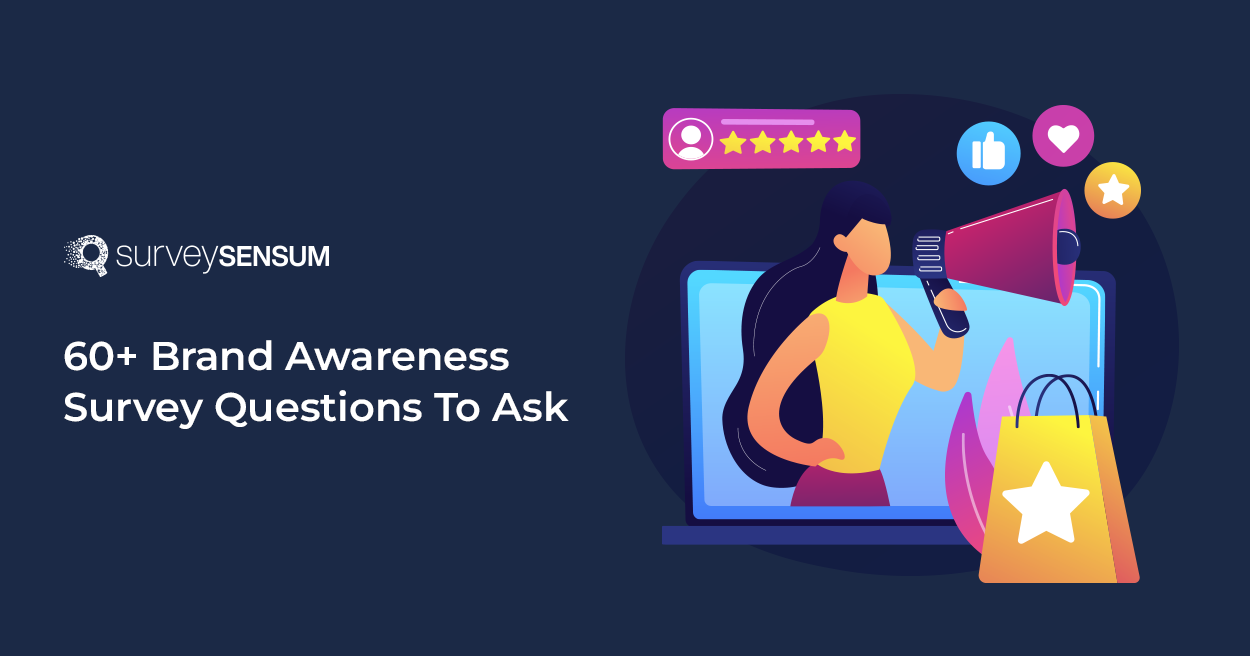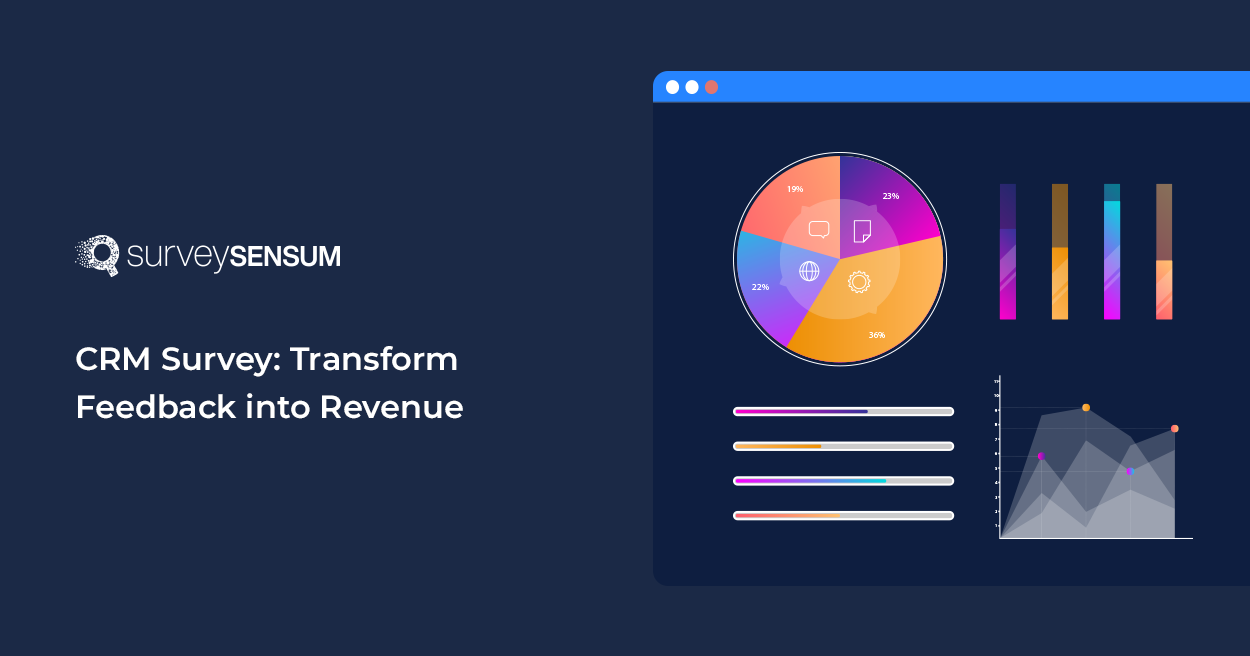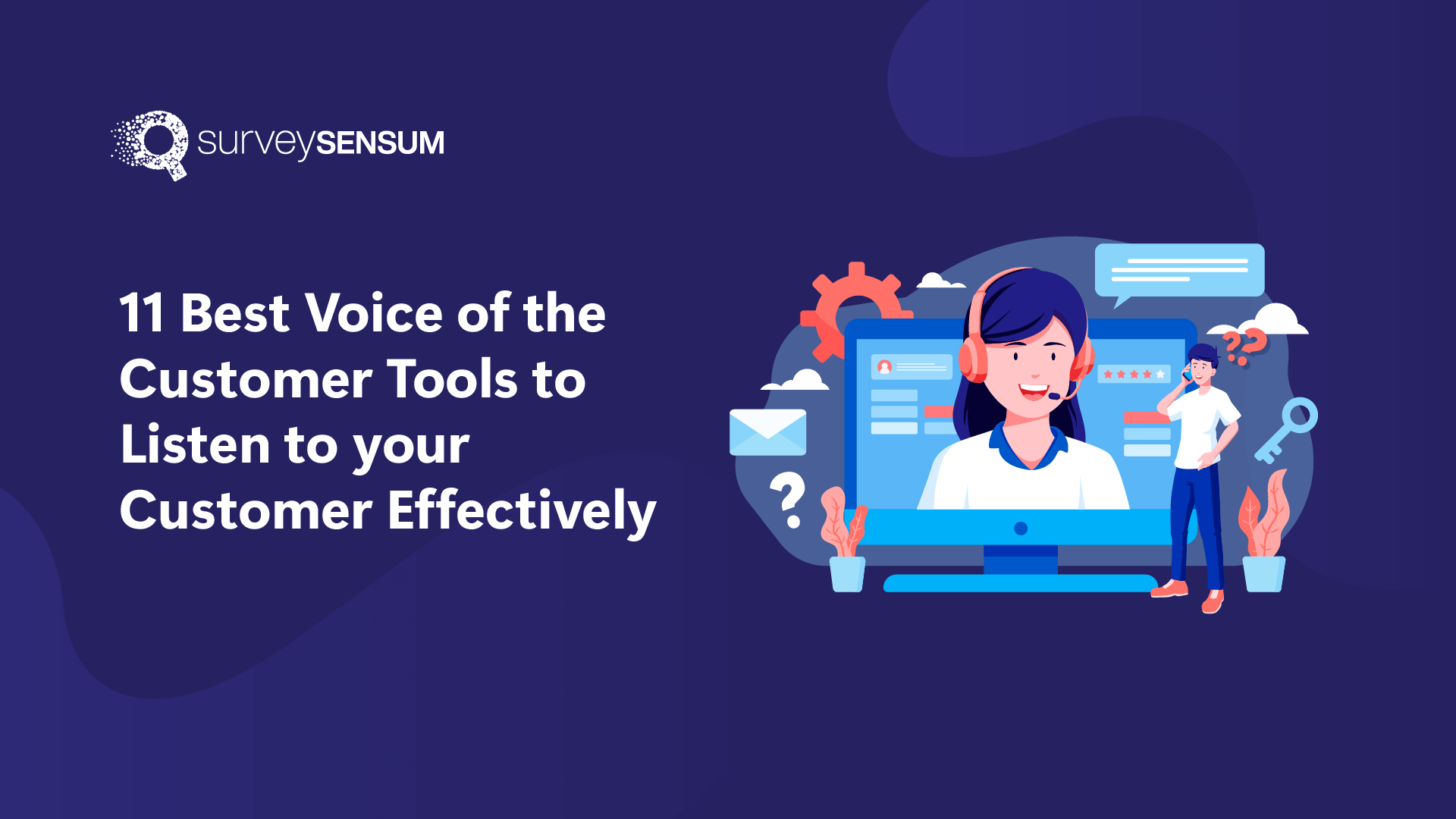
Did you know that 73% of customers are more likely to trust a brand they already know?
When it comes to creating strategies to make customers keep coming back to you, brand awareness is your way in. Brand awareness is what makes your brand stand out among your competitors. I mean think about it – if potential customers are unaware of your brand they are obviously going to choose your competitor no matter how good your product or service is.
So, let’s leverage this strategy, but wait how to do that? Well, you can begin by launching brand awareness surveys.
Curious? Let’s learn more about this survey and discover the top questions that you can ask to make this survey more effective.
What is a Brand Awareness Survey?
Brand awareness surveys are used to gauge how well a business is recognized, remembered, and perceived by the target audience. The surveys evaluate some key areas like brand recognition, brand perception, brand loyalty, brand recall, customer awareness, and competitor analysis.
These actionable insights help businesses understand where they stand in this competitive market, identify areas of improvement, and shape strategies for enhancing stronger brand visibility, perception, and connection.
The survey help you answer the following questions:
- Are people recognizing your brand as a leader or are you losing your position to your competitors?
- Do people think about your brand when they think about your industry?
- Are your marketing and CX strategies working well?
Now that you understand what a brand awareness survey is and why you need to launch one in the first place, let’s now discover some of the top brand awareness survey questions you ask.
60+ Brand Awareness Survey Questions
Here are the top 60+ brand awareness survey questions examples for different categories.
1. Brand Recognition
What: It helps businesses understand if respondents are familiar with their brand and whether or not they are able to identify the brand by its logo, messaging, or brand colors.
Why: This helps gauge the effectiveness of the brand’s visibility and the strength of its identity in the market.
Questions to ask:
1. How familiar are you with our brand?
2. Can you identify our logo when you see it?
3. Have you seen or heard about our brand in the past month?
4. Which of the following brands have you heard of? (List your brand and competitors)
5. How often do you come across our brand in your daily life? (Very often, Often, Sometimes, Rarely, and Never)
6. Can you recall where you last saw or heard about our brand?
7. Do you recognize our brand’s tagline or slogan?
8. How easily do you recognize our brand compared to others in the same industry?
9. When you think of [industry], does our brand come to mind?
10. Have you ever used any of our products or services? (Yes/No)
2. Brand Recall
What: It allows businesses to test whether or not respondents can remember your brand without prompts.
Why: This indicates the effectiveness of the brand’s presence in customer’s minds.
Questions to ask:
11. How would you describe our brand in a few words?
12. What three words come to mind when you think of our brand?
13. How would you rate the quality of our products/services?
14. How trustworthy do you find our brand?
15. Do you associate our brand with positive or negative experiences?
16. How well do you think our brand aligns with your personal values?
17. How innovative do you consider our brand to be?
18. How likely are you to recommend our brand to others?
19. What emotions do you feel when you think about our brand?
20. How does our brand’s image compare to other brands in the same industry?
Launch Brand Awareness Surveys with pre-designed survey templates and relevant questions to improve your brand recognition among your target audience.
3. Brand Perception
What: This helps businesses gauge how customers view and feel about their brand.
Why: It provides insights into the brand’s image, reputation, and emotional appeal.
Questions to ask:
21. How would you describe our brand in a few words?
22. What three words come to mind when you think of our brand?
23. How would you rate the quality of our products/services?
24. How trustworthy do you find our brand?
25. Do you associate our brand with positive or negative experiences?
26. How well do you think our brand aligns with your personal values?
27. How innovative do you consider our brand to be?
28. How likely are you to recommend our brand to others?
29. What emotions do you feel when you think about our brand?
30. How does our brand’s image compare to other brands in the same industry?
4. Brand Loyalty
What: It helps businesses gauge the likelihood of customers recommending the brand to others.
Why: It helps businesses assess customer retention and customer loyalty.
Questions to ask:
31. On a scale of 0-10, how likely are you to continue purchasing from our brand?
32. Have you recommended our brand to friends or family? (Yes/No)
33. What would make you switch to a competitor’s brand?
34. On a scale of 1-7, how satisfied are you with your overall experience with our brand?
35. How often do you choose our brand over others?
36. How likely are you to try new products from our brand?
37. What motivates your loyalty to our brand?
38. Have you participated in any of our brand’s loyalty programs?
39. How do you feel about the value for money our brand offers?
40. What improvements would make you more loyal to our brand?
5. Customer Awareness
What: It gauges whether or not customers are informed about your products, services, and overall brand.
Why: Assessing customer awareness helps determine how effectively a brand communicates its offerings and values.
Questions to ask:
41. Are you aware of the full range of products or services our brand offers?
42. How did you first hear about our brand?
43. Do you know where you can purchase our products/services?
44. How often do you seek information about our brand online?
45. Are you aware of any recent updates or changes to our brand?
46. Do you follow our brand on social media?
47. How informed do you feel about our brand’s mission and values?
48. Are you aware of any promotions or special offers from our brand?
49. Do you understand the unique selling points of our products/services?
50. How likely are you to research more about our brand before making a purchase?
Don’t just guess, know! Launch your first brand awareness survey and gain insights into your brand’s market presence, loyalty, perception, and competition, and better understand your target audience!
6. Competitor Analysis
What: It compares a brand’s performance, perception, and recognition against its competition.
Why: This competitive analysis helps understand a brand’s competitive position and identify strengths and weaknesses relative to other market players.
Questions to ask:
51. Which other brands do you consider when thinking of purchasing [product category]?
52. How does our brand compare to competitors in terms of quality?
53. What features do you think set our competitors apart from our brand?
54. Which competitor brands do you perceive as our biggest rivals?
55. How does our brand’s pricing compare to that of competitors?
56. Are you more likely to purchase from our brand or a competitor?
57. What do you think our brand offers that competitors do not?
58. How do you rate our brand’s customer service compared to competitors?
59. Which brand do you think offers better value for money, ours or a competitor?
60. How often do you consider switching to a competitor’s brand?
Conclusion
Whether you are aiming to boost your brand recognition, strengthen your brand loyalty, or want to stay ahead of the competition – a well-crafted brand awareness survey design with relevant questions is your way in. By leveraging feedback across some key areas such as brand recognition, perception, loyalty, recall, customer awareness, and competitor analysis, you can gain actionable insights into how well your brand is being perceived and remembered by your customers and your target audience.
However, launching the right type of survey at the right time can be a daunting task and will require the use of a robust customer feedback tool like SurveySensum. This tool will provide you with end-to-end service – from survey creation in under 5 minutes to detailed analysis that will help you take prioritized action and improve your strategies.















